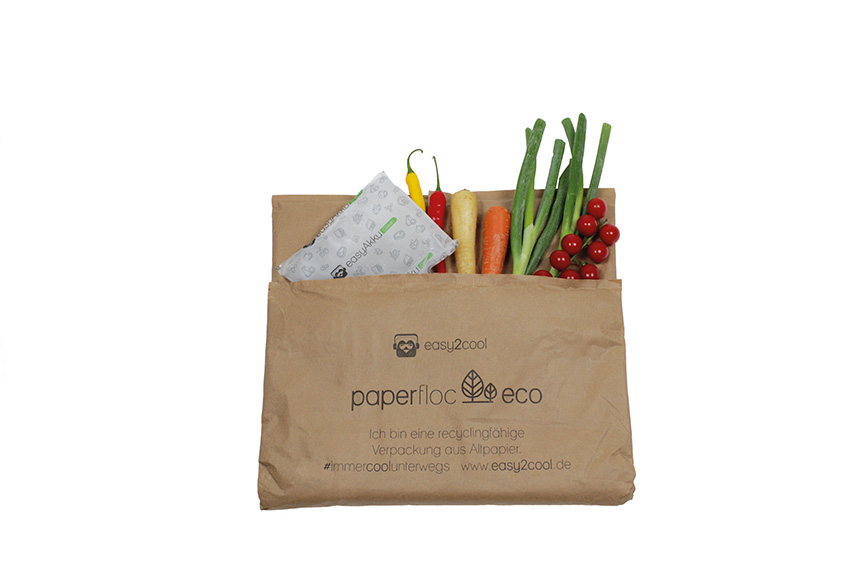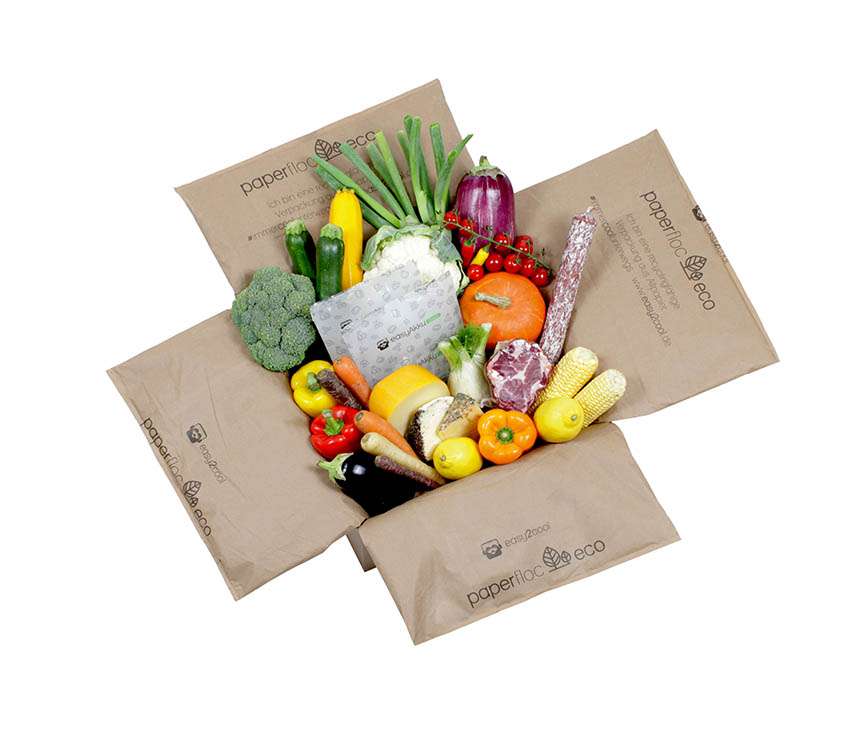easy2cool is a company which specialises in individual, passive cooling solutions and provides holistic cooling concepts for the protection of temperature-sensitive goods.
The company wanted to create a sustainable alternative for insulating packaging which would be second to none in terms of performance and transport safety. Insulation systems for cooling shipment are usually made of expanded polystyrene (EPS) and plastics. Due to high energy demand for production and enormously problematic disposal, an immense pollution for climate, water and soil evolves. The solution: a new sustainable insulation material, that easy2cool has developed in a joint research project with TU Dresden. The basic material is simple and efficient at the same time – recycled paper!
Interview with Mirko Cyron, General Manager | Sales Manager at easy2cool GmbH.
Easy Engineering: What are the main areas of activity of the company?
Mirko Cyron: Ever since its founding, easy2cool GmbH has set out to revolutionise the market for mobile cooling. To this end, the company has developed a novel, sustainable thermal insulation material in cooperation with the Institute of Natural Materials Technology at the TU Dresden. The goal was to find an environmentally friendly insulation material that could serve as a sustainable alternative to expanded polystyrene (EPS).
The solution: paperfloc – a new type of ecological shipping insulation made from cellulose fibers. For this purpose, waste paper is shredded in a special process and finally processed into insulating mats or bags.
Meanwhile, the range of innovative products extends from cool boxes and gel packs for the leisure sector to solutions for professional deep-freeze transport. The in-house production facility in Bavaria ensures a high degree of flexibility and is the enabler for the high-quality standards. Sustainability and resource efficiency play an essential role, from production to disposal of our paperfloc shipping insulations.

Moreover, our system keeps the disposal effort for the consumer as low as possible.
The paperfloc system offers the best price/performance ratio compared to insulation systems currently on the market for shipping temperature-sensitive products. Our paperfloc packaging has been tested in over 1,000 internal and external climate chamber and shipping tests.
In our development department, our shipping packaging is optimized for your purpose. The validation of all packaging according to DIN 10543 takes place in our in-house laboratory.
E.E: What’s the news about new products?
M.C: Our new and innovative paperfloc eco shipping insulation now have for the first time an outer shell made of paper. That way we were able to increase the paper components for our established insulation mats and bags and eliminate the plastic components almost completely. The shipment of fresh and frozen food, for example meat or prepared dishes, which has already been possible in a climate neutral way for several years with the paperfloc shipping systems, will be this way even more sustainable. The insulation bags and boxes can be thrown away in the paper waste as usual. But thanks to the use of the new barrier paper the recyclability compared to the current paperfloc insulation is once more way better.
E.E: What are the ranges of products?
M.C: Our product range includes solutions for end users as well as cooling systems for transport and logistics. Depending on the application, these concepts are customised for our clients in terms of size and performance to ensure the best possible implementation.
The easy2cool paperfloc shipping systems are new and innovative insulated packaging for shipment of fresh or deep-frozen food. Our insulated bags and insulated boxes (cardboard boxes) are made from 100% recyclable materials and can be disposed of as a whole in the paper waste.
In addition, our easyAkku cold packs, which were specially developed for shipping food items, ensure that your goods remain chilled and fresh for a very long time. Convince yourself of our easy and efficient concept!
E.E: At what stage is the market where you are currently active?
M.C: The e-commerce food market is a young and fast-growing industry that has seen above-average growth in sales and reach, especially in the pandemic years of 2020 and 2021. Despite all this, in our core area (Germany, Austria, Italy, Switzerland), the e-commerce food sector accounts for less than 3% of food sales on average.

E.E: What can you tell us about market trends?
M.C: Especially regional specialities and organically produced products, but also vegetarian and vegan food are increasingly offered for sale online. The consumers’ environmental awareness does not stop with the product itself. Rather, attention is also paid to ensuring that the product and shipping packaging meet their own ecological standards. Many mail-order food companies have already adapted to this change in customer behaviour in recent months – but the majority of them still have a long way to go or are in the middle of the conversion process.
E.E: What are the most innovative products marketed?
M.C: The market launch of our product ‘paperfloc eco’ in September 2022 was a milestone in our company history. The customer feedback, but especially the consumer feedback, has been overwhelming. We are sure that we have one of the most innovative product solutions on the market.
E.E: What estimations do you have for 2023?
M.C: The e-commerce food market was a clear beneficiary of the pandemic years 2020 and 2021. During this period, turnover and acceptance increased, in some cases significantly, and there were numerous start-ups in this sector. We were also able to profit from this. In 2022, the entire industry was striving for stability, as consumer demand declined compared to the two previous years. We also used 2022 to drive and implement product innovations (‘paperfloc eco’), optimise production processes and further improve our product quality. Thus, in 2023 we are in a better position than ever and see a lot of opportunities as the demand for efficient, ecological and attractively priced packaging will continue to increase.

